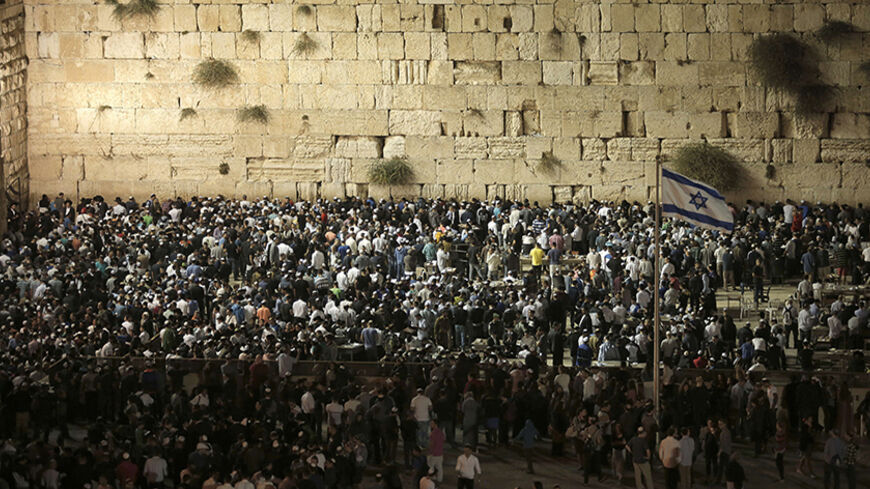JERUSALEM — The scores of stands selling Jewish traditional skullcaps in the Old City allude to the flood of secular Jews to Jerusalem. Tens of thousands of secular Jews fill the holy city at the end of the Hebrew month of Elul and the beginning of Tishrei (September-October) to listen to Selichot liturgical poems and the sounding of the shofar (ram's horn). For this purpose, they purchase nice traditional skullcaps to wear.
Selichot is a collection of prayers and liturgical poems that are entreaties for forgiveness and absolution from the Creator for one’s sins. It is customary for Jews to recite these repentance prayers from the month of Elul (the last month in the Jewish calendar) until the Day of Atonement, or Yom Kippur, which this year falls on Oct. 4.



